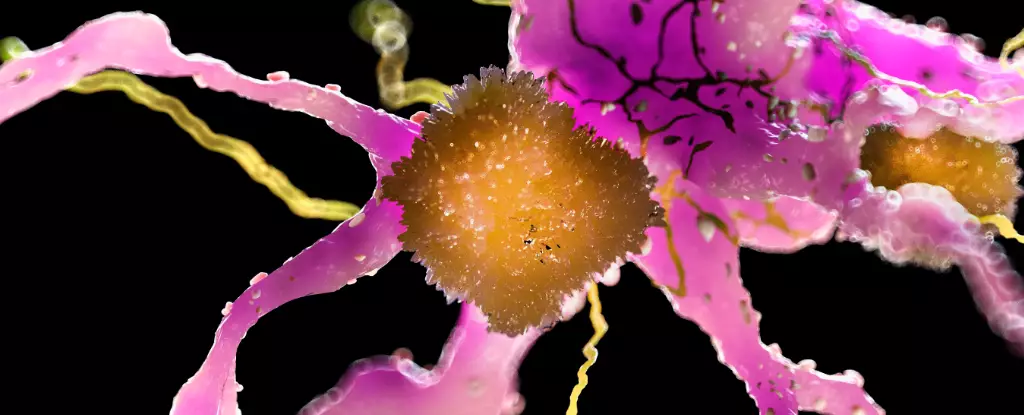In an era marked by alarming statistics regarding Alzheimer’s disease—currently affecting nearly 6 million Americans—a new glimmer of hope has emerged from Washington University. Neurologist Randall J. Bateman, a central figure in groundbreaking research, recently proclaimed, “One day soon, we may be delaying the onset of Alzheimer’s disease for millions.” This optimism stems from a recent clinical study focused on Individuals with Dominantly Inherited Alzheimer’s (DIA), a rare, hereditary form that often leads to symptoms appearing in their 50s. Although DIA constitutes only about 1% of total Alzheimer’s cases, findings from this trial could potentially reverberate across the entirety of Alzheimer’s research, paving the way for preventive strategies in at-risk populations.
Although there is a rich trove of research examining treatment options for existing Alzheimer’s patients, little attention has been given to preventative measures for those genetically predisposed to the disease. The recent clinical trial underscored this shift in focus, meticulously examining how a combination therapy of two monoclonal antibodies could not only slow the progression of Alzheimer’s in symptomatic individuals but also fend off its onset in those merely on the brink of its dreadful clutches. In 2012, Bateman’s team initiated a comprehensive investigation into this therapeutic pathway, although their early Phase 3 trials failed to produce desired symptomatic relief.
Gantenerumab: A Ray of Hope Against Alzheimer’s Onset
Among the two antibodies tested in the trial, gantenerumab emerged as a notable contender, exhibiting a remarkable ability to ameliorate the neurodegenerative pathology at a molecular level. The reduction of amyloid protein deposits—the hallmark of Alzheimer’s—has been especially encouraging. Bateman confirmed that those participants who continued treatment during a follow-up stage observed their risk of developing cognitive symptoms halved. While clinical trials often hinge on strict parameters to declare success or failure, this unexpected finding offers a narrative of hope that could redefine how we view Alzheimer’s prevention.
The ramifications of these findings cannot be overstated. Participants with high-risk genetic mutations may now manage their trajectory towards Alzheimer’s disease actively. As Bateman aptly phrased it, “What we do know is that it’s possible at least to delay the onset of the symptoms of Alzheimer’s disease and give people more years of healthy life.” This foresight not only enhances the quality of life for potential patients but concurrently offers their families a chance to prepare and adapt to what could have been an unrelenting fate.
Risks and Ethical Considerations in Alzheimer’s Treatment
However, the introduction of antibody treatments is not without its complexities. The very nature of experimental therapies often invites risks such as cerebral microbleeds and brain swelling. While these occurrences may seem rare, they pose serious implications, especially for populations that are already vulnerable due to their genetic predispositions. Furthermore, understanding the interplay between these potential side effects and the underlying pathology of Alzheimer’s remains paramount.
Despite these challenges, various anti-amyloid treatments have gained approval for Alzheimer’s patients already experiencing cognitive decline, sparking debates about the ethical landscape of treating such a debilitating condition. Who truly benefits? Should we prioritize immediate treatment for symptomatic individuals or invest in preventive measures that might protect future generations? These questions loom heavy over healthcare practitioners and researchers alike, inviting discourse centered around equity, access, and the long-term ramifications of our clinical choices.
A Future Filled with Possibilities
While we still wait for definitive conclusions and widespread implementations of such therapies, the progress made thus far heralds a transformative epoch in our understanding of Alzheimer’s disease. As research progresses, there is an air of optimism surrounding the potential for preventive treatments that could reshape the landscape of neurodegenerative diseases. The foundational work laid by Bateman and his colleagues illustrates the reality that scientific inquiry can lead to uncharted territories of hope. The dream of delaying Alzheimer’s onset now seems increasingly attainable—a reality we cannot afford to ignore.

